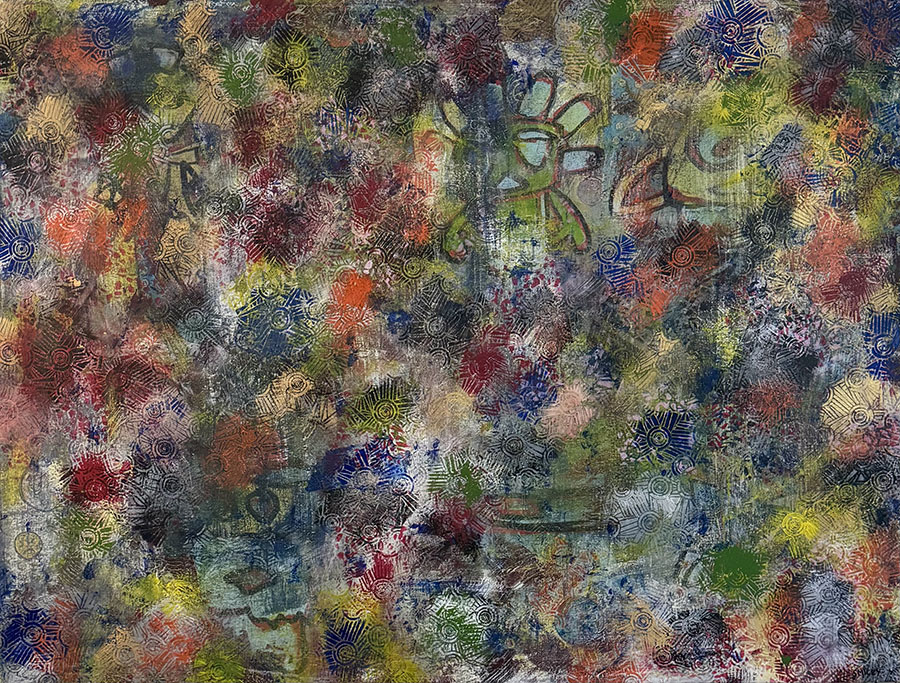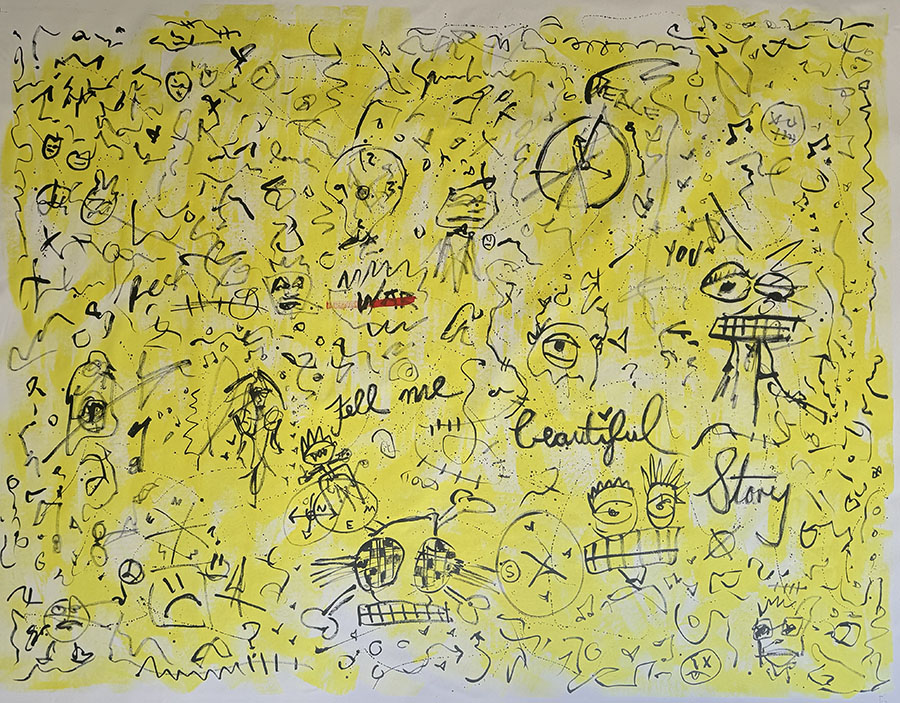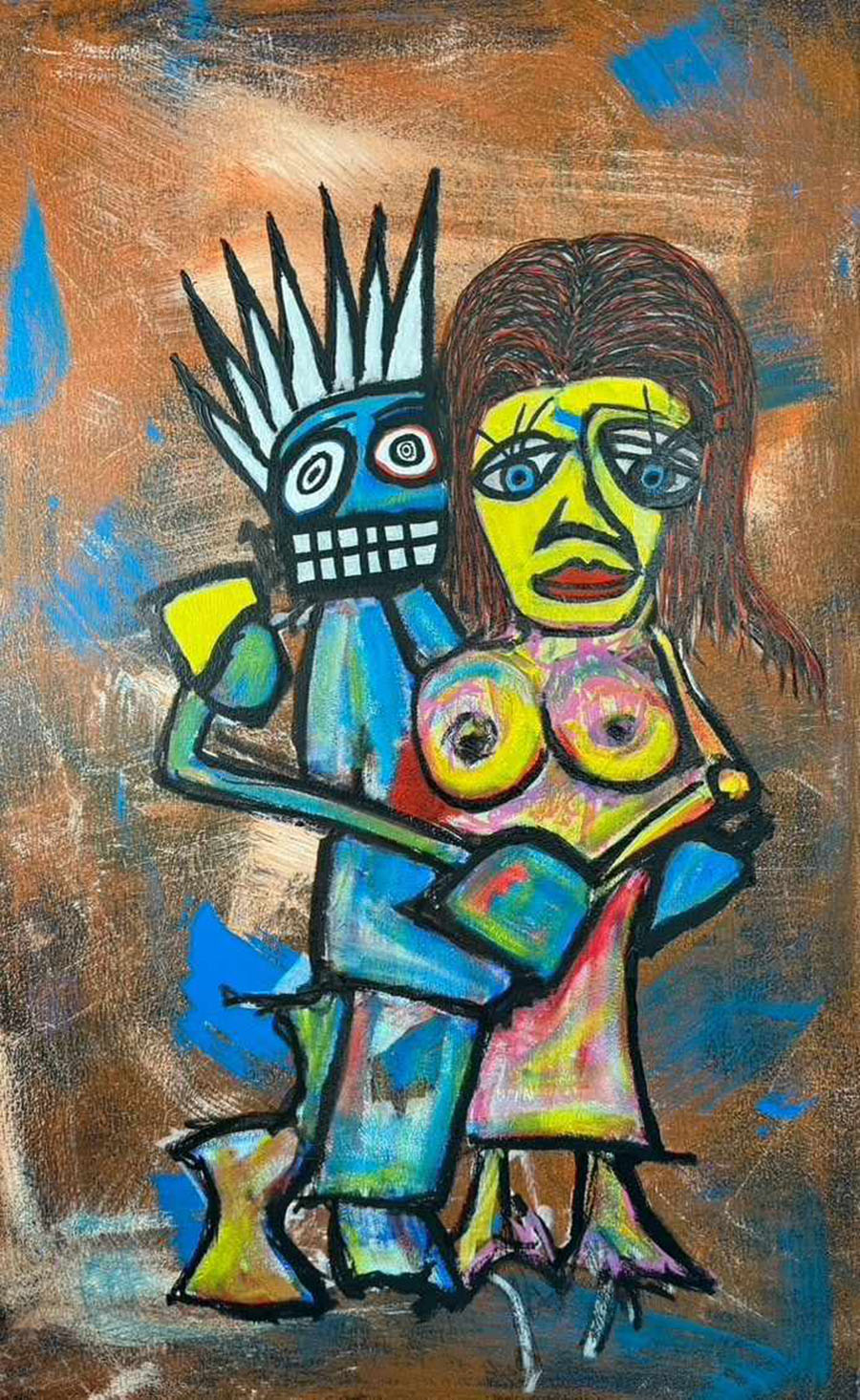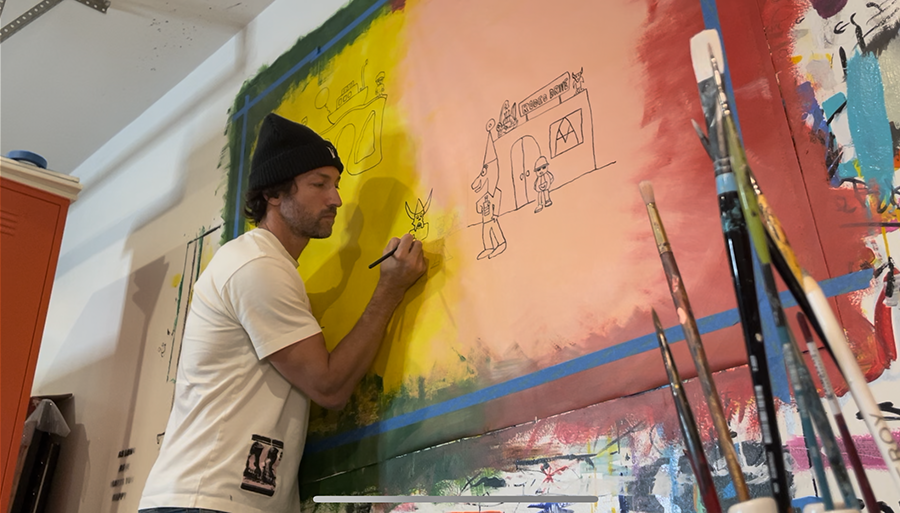
Emerging neo-expressionist, post-pop, and multimedia artist Matt Smiley says he’s always been captivated by neo-expressionism’s raw power and profound emotion.
The movement, centered on individual perspective and emotional experience, has left an indelible mark on the art world and inspired countless artists—including Smiley—to delve deeper into the human condition and the vivid tapestry of our inner lives.
“In my artistic journey, I’ve found a kindred spirit in neo-expressionism,” Smiley says. “My works are characterized by automatic writings—subconscious thoughts filtering onto the canvas, symbolizing the intensity of emotions. Imaginative characters emerge, representing different facets of the human condition, echoing the expressionist ethos of channeling raw emotion and personal narrative into every brushstroke.


Smiley says he draws inspiration from Kusama’s cosmic dreams and repetition, Schnabel’s bold and textured surfaces, Picasso’s boundless creativity, Jasper John’s perceptions and layers, Basquiat’s raw energy, and Warhol’s pop-culture flair.
The artist’s ascent into the art world began with his first solo exhibition in 2017, Dreams Fizzle into Space. The show featured a 32-piece Warholian hand-painted Soup Can collection, establishing Smiley as an artist with bold conceptual prowess.
Among his notable works is the mural Blocs of Love, an Instagram sensation when it first hit downtown Los Angeles. Building on the success of that project, Smiley unveiled Dear Diary in Hollywood in 2018, captivating audiences with his seamless blend of narrative and visual art.
“I want viewers to feel the grit of life, taste the Hollywood glow, and lose themselves in the different facets of my imagination,” Smiley says. “Neo-expressionism, with its fearless embrace of the subjective, reminds us of the beauty and power of human connection. It’s a reminder that art, at its best, reflects the human soul.”
Smiley’s art has been exhibited alongside esteemed artists such as Ed Ruscha, James Turrell, and Shepard Fairey (Obey), solidifying his place in the contemporary art world. His dynamic and evocative pieces continue to draw attention and admiration from art enthusiasts and collectors alike.
“When someone stands before my work, I want their heart to skip a beat,” Smiley says. “Maybe they’ll see their struggles—their dreams—reflected in the pieces. We’re all connected, after all. Relationships and communication are the warp and weft of existence. In my art, I explore those threads—the frayed edges, the knots, the fragile beauty of vulnerability.”

Parallel to his artistic pursuits, Smiley has directed impactful documentaries, including Highway of Tears in 2014, shedding light on the missing women along Highway 16 in northern British Columbia. The film, narrated by Nathan Fillion, premiered at the TIFF Human Rights Watch Film Festival and earned widespread acclaim.
In 2019, Smiley directed For Love, a documentary on Indigenous child welfare in Canada, narrated by Shania Twain. The film is available on Netflix in Canada and Amazon in the U.S. and U.K.
Through his work with charitable organizations like Human Rights Watch, UNICEF, and Boo2Bullying, Smiley strives to extend the reach of art’s transformative power, using it as a force for positive change. He believes art can connect people on a deeper level, helping to foster empathy and understanding. “I’m hopeful for the positive impact art can make in our world,” Smiley says.


